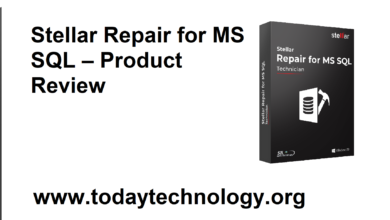
Organizations are dealing with a vast amount of data as we advance into the digital world. Thus, It’s crucial that they manage these data efficiently and stay ahead of the competition. In data management, many overlook metadata management and the wonders that come with it. But don’t worry! In this article, we will delve into what metadata management is and how it can help you with your data.
Table of Contents
Understanding Metadata
Metadata can be defined as “data about data.” It tells the context and some other information about that piece of data. This allows users to understand the meaning, structure, and their relevance. Data source, creation date, and format are just some details that are applied to the data. Metadata basically makes your data searchable and understandable.
What is Metadata Management?
Simply put, metadata management is the practice of organizing, documenting, and controlling metadata throughout its lifespan. Think of it as the librarian of your data that organizes and indexes all information for easy access and interpretation.
The Advantages of Metadata Management
Here are just some of the advantages of metadata management that change the game:
- Improved Data Discoverability: metadata management creates a comprehensive catalog of your data assets. This allows you to locate and retrieve information easily. You no longer need to waste hours on fruitless searches because metadata management makes data discovery more efficient.
- Enhanced Data Quality: you can maintain consistent and accurate information by establishing data standards, definitions, and even rules. You can identify and rectify data quality issues with metadata management by maintaining its lineage and traceability.
- Increased Collaboration and Efficiency: one of metadata management’s aims is to share data across all teams and departments in your organization. Knowledge sharing becomes more effective through collaboration, leading to efficiency.
- Compliance and Governance: metadata management ensures that your data adheres to compliance and governance. This not only mitigates risks but also builds trust with customers and stakeholders.
- Future-Proofed Data Strategy: data grows continuously which makes metadata management even more important. It keeps up with advanced analytics and artificial intelligence. With this, it enriches your data with metadata to stay ahead in progressing technology and a forever-evolving landscape.
How to Start with Metadata Management
Here are some ways to get started with metadata management:
- Determine your metadata requirements: once you find out the most relevant metadata elements to your organization, align them with your business objectives.
- Establish metadata governance: you should define policies, roles, and responsibilities for managing metadata. Let someone manage metadata accuracy, consistency, and compliance.
- Implement metadata management tools: you must explore various metadata management software or platforms to automatically capture, store, and organize metadata. These tools offer features like data lineage, data dictionaries, and data cataloging.
- Train your team: be sure to provide training and workshops to let your team know about the importance of metadata and its management. Create a data-driven culture where everyone understands the metadata value.
Conclusion
Organize your piles of data from a chaotic mess into a valuable asset. By understanding and implementing metadata management, you get to help your team’s shared knowledge pass on easily. Want to start managing your data? Head on to DataGalaxy and book a demo now!






